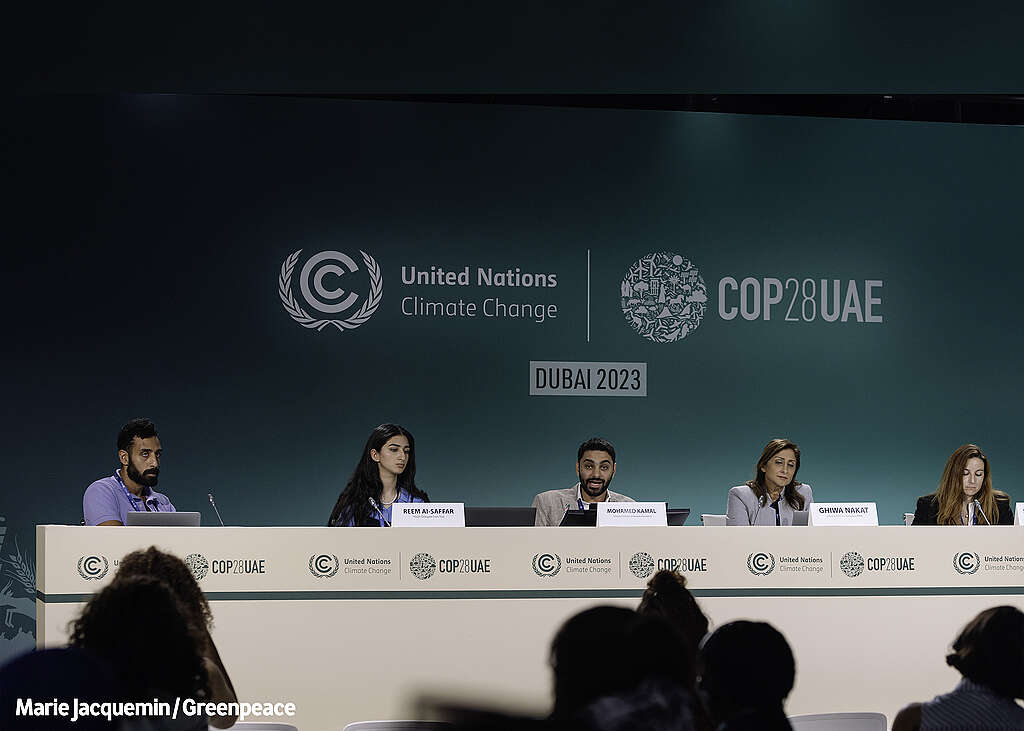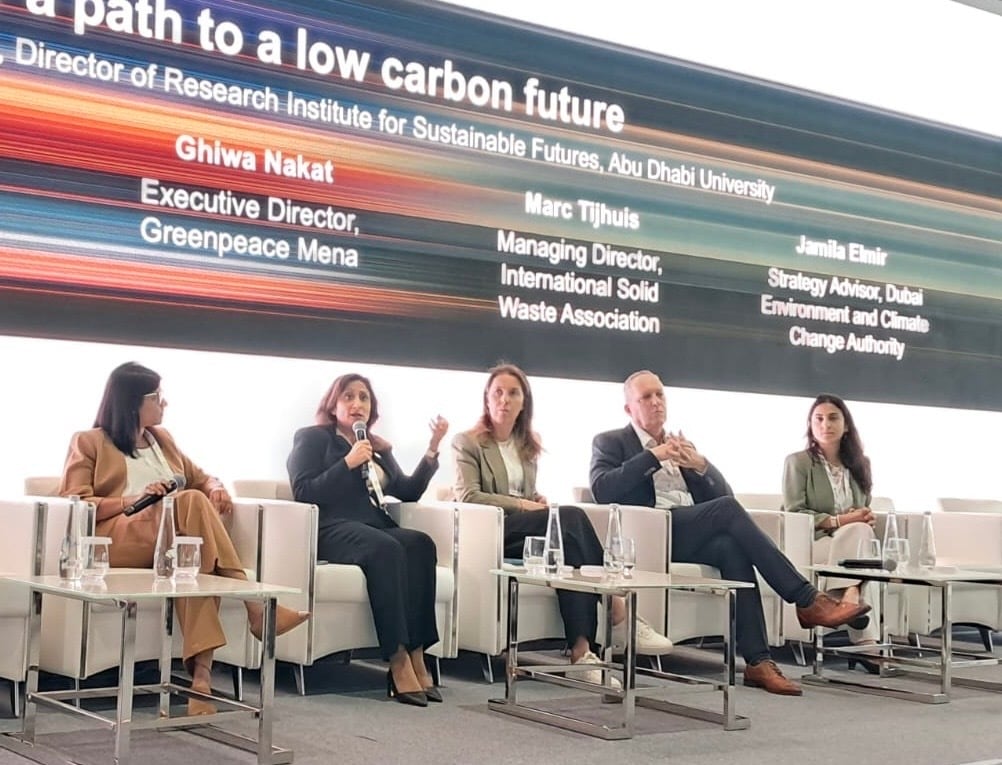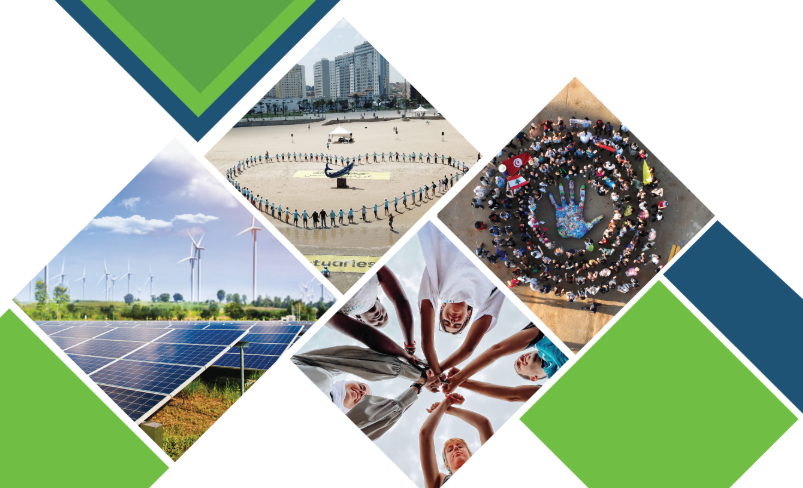
As COP28 enters its final days, Greenpeace MENA is urging Arab countries to help make COP28 a truly historic event, by being part of an agreement on a fair and equitable phaseout of fossil fuel by 2050.
Ghiwa Nakat, Executive Director of Greenpeace MENA, said:
“When millions of people in the MENA region face the escalating impacts of climate disaster the Arab group at COP28, chaired by Saudi Arabia, must embrace the goal set by the UAE COP Presidency and IEA to reduce fossil fuels this decade to meet 1.5°C, and to work together to make this summit a milestone in global climate action. Here in Dubai, we stand on the brink of a historic COP outcome if leaders support the fossil fuel phasedown by 2030 along with a phaseout by mid-century.”
The proposed Global Stocktake decision text explicitly includes the option of a phase-out of fossil fuels, aligning with the IPCC’s 1.5°C pathway. Arab nations need to contribute constructively to global climate action not only within the context of the Arab group but also within the African and Least Developed Countries (LDCs) groups to better reflect the collective will and needs of these diverse groups.
On Friday, it was reported that OPEC had called on its members to reject any action at COP28 against fossil fuels. Greenpeace MENA suggests that this shows that OPEC is feeling the heat, as the negotiations move towards a fossil fuel phaseout. The latest research from Christian Aid and the International Institute for Applied Systems Analysis in Vienna shows that both the UAE and Saudi Arabia face a GDP growth reduction of -72% by 2100 if the global temperature rise is allowed to reach 3°C.
Reem Al-Saffar, Co-founder and Executive Director of the MENA Youth Network, said: “The root cause of the climate crisis is the massive emissions generated by the industrialisation of Global North countries and their exploitation of Global South resources and labor. We need to see an equitable transition to renewable energy that ensures the burdens and benefits are re-distributed fairly with particular attention to historically marginalized and vulnerable communities.
“The worst climate change effects are exacerbated by the emissions produced by burning fossil fuels into our atmosphere. How is a country supposed to survive, if the very thing that vitalizes its economy and feeds its people is the same thing that is ravaging its lands, decimating its biodiversity and harming the health of its people?”
Principles of equity and differentiation need to be applied to a fossil fuel phaseout where developed countries go first and fastest. A comprehensive finance package needs to go hand in hand with the phaseout ambition within the GST. Historical emitters, both companies and countries, need to pay for their contribution to climate disasters and impacts on vulnerable communities and help them transition to a future powered by renewables.
Mohamed Kamal, Executive Director of Greenish Foundation, said: “In the largest cities of the MENA region, air pollution levels rank among the highest globally – directly linked to fossil fuel-related activities, including widespread gas flaring. Iraq, for example, is the second-highest contributor globally, with 17.8 billion m3 of gas flared annually. Gas flaring releases over 250 toxic substances, posing severe health risks, such as increased cancer rates and respiratory problems. One of the primary contributors to air pollution in the region are dirty emissions from transport due to poor quality diesel, with governments prioritizing economic-driven interventions at the expense of public health and the local environment.”
Sarine Karajerjian, Program Director of Arab Reform Initiative, said: “We need to think of renewables as a liberating and empowering venture that ensures clean and accessible energy is available to the country’s population. This is what a just transition requires. Clean, affordable energy not just for export, but for everyone: from disadvantaged residents on the outskirts of cities to remote villagers. We need to shift to an economic model where the idea is not simply to replace oil exports with clean energy exports, but rather to allow clean energy to benefit the population.
At the rate we are living now, we could see temperatures rise by 4 degrees by 2050, making entire swaths of the region uninhabitable for most of the year. Vulnerable communities will be the most affected and will have to endure drought and extreme heat.
-ENDS-
For more information about this press release you can contact:
Dania Cherry
Branding and communications manager
[email protected]
+971 50 530 7083



